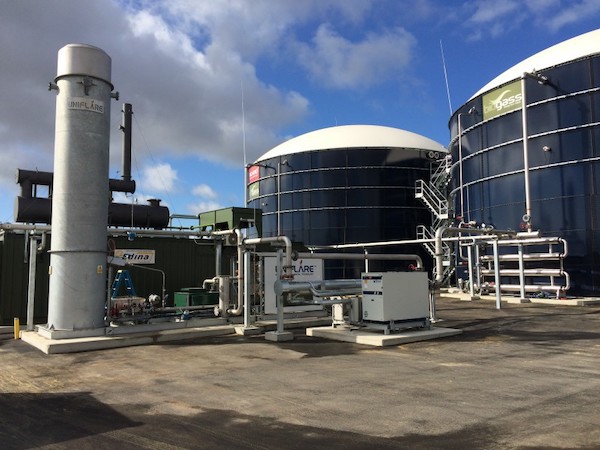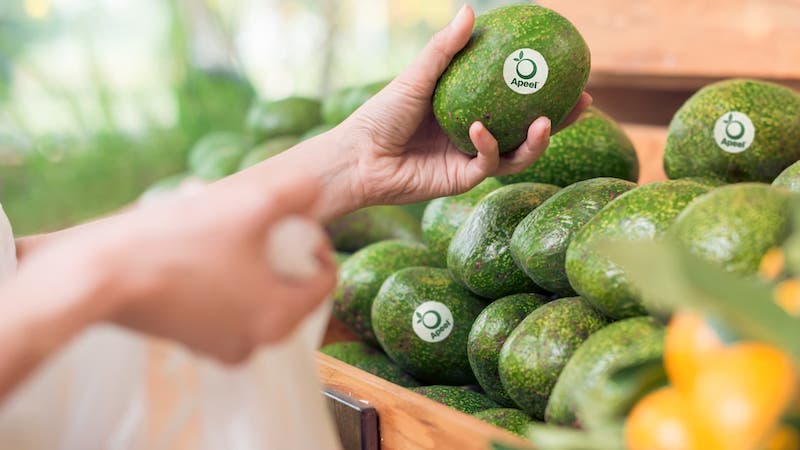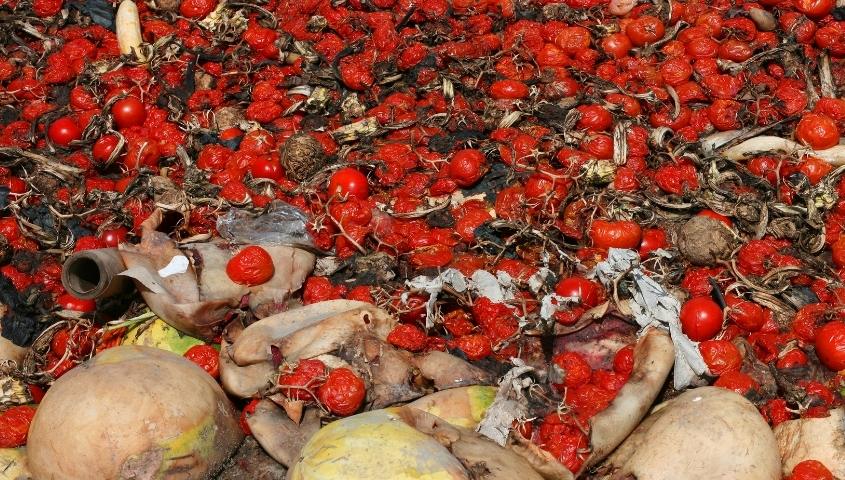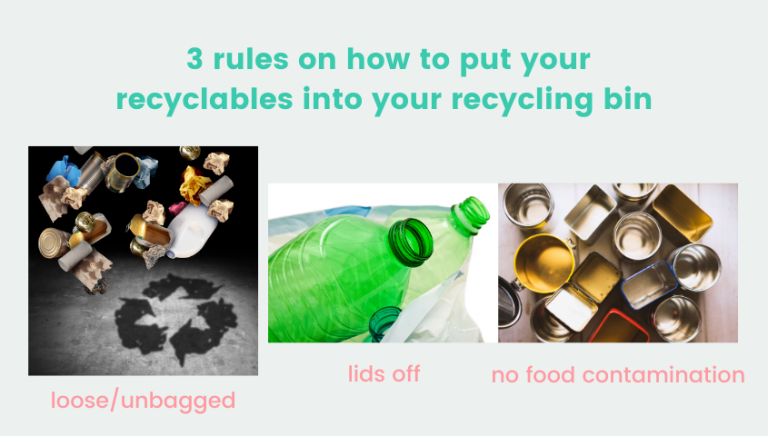Introduction
While removing organic waste from landfill is just one of the mitigating strategies in the fight against the climate crisis, addressing easily achievable goals, like the reduction of organic waste, can provide immediate and concrete advantages in combating it. Reducing the methane production caused by organic waste would help us slow down the warming of the planet within the next crucial decade. Composting organic waste not only aids in the acceleration of regenerative farming practices that prioritise soil health and biodiversity but also offers a unique opportunity to enhance community resilience and safeguard against future disruptions in our food supply chains. Changing our attitude through nationwide education; therefore looking at food waste as a valuable resource is a great economic opportunity. With food waste costing Australia, a staggering 36.6 billion dollars annually, exploring ways to reduce waste and harness its potential can have far-reaching positive impacts on reducing potent methane emissions now when we need it the most and save us money in the process (FIAL, 2023).
Policy responses to climate change
Australia has made significant progress in policy responses to climate change, including the 2018 National Waste Policy and the consequent 2019 National Waste Action Plan. The National Food Waste Strategy, launched in 2017, aims to halve food waste by 2030 in alignment with the UN’s Sustainable Development Goal 12.3 (Australian Government Department of Agriculture, Water and the Environment, 2023).
This strategy emphasizes reducing food waste throughout the supply chain and promotes initiatives such as improved data collection, consumer education, industry collaborations, and food waste recycling systems. The 2019 National Waste Action Plan commits to halving organic waste sent to landfill by 2030, with specific actions including developing organic waste infrastructure and supporting research on food waste reduction and upcycling. Implementing effective waste policies that ban organic matter from landfills and incinerators is crucial to maximize the resource’s value and minimize environmental impacts. By prioritizing the reduction of organic waste and implementing behavioural change strategies, Australia can achieve significant economic, environmental, and social benefits.
A country that knows how not to waste food
In South Korea, food waste management has been effectively implemented through a comprehensive approach. The government enacted a ban on landfilling food waste in 2005. To ensure proper disposal, households are required to use designated food waste bins, often green in colour, which are equipped with radio frequency identification technology for accurate measurement. A volume-based fee system has been implemented, charging households based on the amount of food waste generated. This approach raises awareness of the costs associated with disposal and encourages waste reduction. Municipal authorities conduct regular inspections to enforce compliance and impose penalties for improper disposal or attempts to evade payment. The successful implementation of this system has resulted in high recovery rates of 90 percent by 2016. Food waste is recycled into feedstock for animals, fertilizer, soil amendment, and biogas generation in anaerobic digesters (Ju, M., Bae, SJ., Kim, J.Y. et al., 2016).

Why we need to reduce food waste
Food waste has significant economic and environmental impacts, whether it is lost on the farm, during transportation or at the end of its journey by the end consumer. Here are some statistics from the National Food Waste Strategy Feasibility Study (FIAL, 2021):
- Worldwide we waste one-third of all food.
- One-fourth of the water utilized in agriculture is dedicated to cultivating food that ultimately goes to waste.
- 8% of global greenhouse emissions are caused by food waste.
- The economic impact of food waste amounts to approximately $36.6 billion per year.
- On an annual basis, an estimated 7.6 million tonnes of food are squandered across the entire supply and consumption chain. This equates to roughly 312 kilograms per person, equivalent to about one in every five grocery bags or $2,000 to $2,500 per household annually.
- Food waste is responsible for approximately 3% of Australia’s yearly greenhouse gas emissions.
- Australia utilizes roughly 2600 gigalitres of water to produce food that ends up being wasted, which is equivalent to the volume of water in five Sydney Harbours.
- The land area utilized to grow wasted food encompasses more than 25 million hectares, surpassing the size of the state of Victoria.
How much food do we waste in Australia each year?
Consider the following statistics from Reducing Australia’s Food Waste by half by 2030 (FIAL, 2019):
- A considerable portion of vegetables, up to 25%, is left unharvested on farms. For example, 31% of carrots that are not harvested amount to a cost of $60 million.
- The total cost of agricultural food losses to farmers reaches $2.84 billion.
- Households discard around 3.1 million tonnes of edible food annually, which is equivalent to nearly 17,000 grounded 747 jumbo jets.
- Food waste costs for households range from $2,200 to $3,800.
- The commercial and industrial sectors waste approximately 2.2 million tonnes of food, incurring significant waste disposal charges and lost product costs for businesses.
Benefits of mitigating organic waste
- Redirecting organic waste from landfills now could help us reduce the production of methane – a gas that may be short-term lived but is 86 times higher than carbon dioxide when averaged over 20 years and 28 times higher over 100 years (Canadell R. et. al, 2020). This would mean we could slow down the heating of our planet faster.
- With Australia having one of the most depleted soils in the world (Australian Government Department of Agriculture, Water and the Environment 2020), composting our food waste should be mandated to avoid the loss of valuable resources. Composting organic waste and using it as a nutrient-rich soil amendment enhances soil health, fertility, and structure. Compost helps retain moisture in the soil, reducing the need for synthetic fertilizers and irrigation (FAO, 2023).
- Improved soil health increases microbial activity and biodiversity, supporting natural nutrient cycling and reducing reliance on external inputs.
- Food redirection: By preventing food waste, we can redirect saved food to people in need. This helps address food insecurity and reduces the strain on resources required to produce additional food.
- Economic opportunities: Mitigating organic waste also presents economic opportunities, particularly in the upcycled food waste market. The transformation of food waste into value-added products can contribute to job creation, innovative business models, and the development of a circular economy.
Opportunities for reducing organic waste
Avoiding food waste: Achieving a reduction in food waste requires a comprehensive approach addressing various stages of the global food system. This can be accomplished through centralized nationwide educational campaigns, behaviour change initiatives, and collaboration with local governments. In Australia, where households generate one-third of all waste, with 92 percent ending up in landfill (FIAL, 2019), it is crucial to encourage responsible purchasing and portioning practices among both consumers and businesses. By diverting surplus food to those in need, we can effectively avoid waste while addressing food insecurity. Additionally, raising awareness about organic waste management through targeted campaigns, educational programs, and community outreach is essential. These efforts should provide information on the environmental impacts of organic waste, highlight the benefits of proper waste management, and offer practical tips on composting, food waste reduction, and recycling. According to Stop Food Waste Australia (2023), the country produces enough food to feed 75 million people despite having a population of 25 million. However, approximately 7.6 million tonnes of food are wasted annually, equivalent to filling the Melbourne Cricket Ground nearly nine times to the brim.
Reducing organic waste to landfill: Establishing policies and infrastructure to divert organic waste from landfills. Prioritise the delivery of Food Organics, Garden Organic (FOGO) collections to metropolitan households and businesses by 2024 or earlier. In 2020, approximately 42 per cent of Australians had access to a GO kerbside collection service and approximately 32 per cent have access to a FOGO kerbside collection service (Australian Government Department of Climate Change, Energy, the Environment and Water, 2023). Through the National Waste Policy Action Plan (2019), states and territories have agreed to introduce FOGO kerbside collection services to households and businesses by end-2023 yet according to WA’s Waste Authority website (2023), right now only 25 councils in WA have implemented FOGO. That’s less than 20 per cent out of 138 councils.
Focus on composting over recycling infrastructure: Local governments that have not already adopted the three-bin system should focus on implementing FOGO kerbside in conjunction with landfill collections over recycling. Recovery rates are typically lower in two-bin systems compared to systems with a separate organics bin (such as FOGO). Furthermore, organics recycling serves as an excellent example of a closed-loop system as it allows for the recovery of materials that can be recycled and reused locally (Waste Authority Western Australia, 2020). Currently, most of the recovered materials from kerbside recycling bins are not death with locally and are shipped to developing countries for further processing.
Composting and anaerobic digestion: Encouraging widespread adoption of composting and anaerobic digestion facilities at various scales, especially in regional areas, is crucial. Dealing with organic waste locally helps avoid additional emissions caused by transport. The Jandakot plant near Perth serves as an excellent example of an effective solution that, not only eliminates emissions but also generates clean energy and introduces economically viable fertilizer products. Biodigestion captures methane and produces renewable energy, while composting sequesters carbon and enhances soil health. Implementing a combination of these methods is vital to mitigate emissions from transporting food waste.

Biochar: The production of biochar involves heating the organic waste material in a low-oxygen environment, a process known as pyrolysis. This prevents the material from combusting completely and allows for the creation of a stable carbon-rich product. It is made of organic waste materials such as agricultural residues, plant or animal feedstock and other organic matter. It is a carbon-rich material that can be used as a soil amendment and has gained attention for its potential benefits in agriculture, environmental remediation, and carbon sequestration. The findings from experiments in Western Australia and South Australia indicate that banded biochar application at relatively low rates can potentially reduce fertilizer requirements while maintaining crop productivity, with benefits likely attributed to improved nutrient and water uptake through increased arbuscular mycorrhizal fungal colonisation, suggesting economic viability if considering long-term soil fertility and potential carbon trading accreditation (Blackwell Paul, Krull Evelyn, Butler Greg, Herbert Allan, Solaiman Zakaria, 2010).
Supporting innovative circular solutions: Explore technological solutions that facilitate organic waste management, such as smart composting systems, mobile applications for food waste tracking and management, and online platforms for sharing surplus food within communities and businesses. A good example is the platform Yume (2023) which facilitates sales of surplus commercial food online.
Examples of innovative solutions for food waste
1. Toast Ale (2023): In addition to repurposing surplus bread, Toast Ale partners with breweries to create delicious and unique craft beers.
2. Future Green Solutions (2023): Australian company that utilises the Black Soldier Fly to upcycle low-value organic waste into high-value products such as pet food and biofertilizer.
3. Donut Waste (2023): An Australian company that repurposes spent coffee grounds to create sustainable and eco-friendly products such as coffee scrubs and soaps.
4. Too Good to Go and Foody Bag (2023): These are mobile apps that connect consumers with restaurants, cafes, and bakeries offering surplus food at discounted prices.
5. Apeel Sciences (2023): A plant-based coating for fruits and vegetables that extends their shelf life.

Conclusion
Mitigating organic waste and transforming it into a valuable resource is crucial in the fight against climate change. By implementing effective waste management strategies, such as diverting organic waste from landfills and promoting composting and anaerobic digestion, we can achieve immediate and tangible advantages. Acting now to implement Food Organics, Garden Organics (FOGO) collections and localised food waste solutions can significantly reduce methane emissions, slow down global warming, and safeguard food supply chains. Australia has made significant progress in policy responses to climate change, including the National Waste Action Plan and the National Food Waste Strategy. Prioritizing the reduction of organic waste and implementing behaviour change strategies can unlock economic, environmental, and social benefits. Drawing inspiration from South Korea’s successful food waste management measures, Australia can raise awareness, enforce proper disposal, and recycle food waste into valuable resources like animal feed, fertilizer, and biogas.
Reducing food waste not only helps combat climate change but also addresses food insecurity and resource strain. It redirects saved food to those in need, improves soil health, enhances nutrient cycling, and supports regenerative farming practices. By implementing comprehensive approaches such as nationwide educational campaigns, behaviour change initiatives, and collaboration with local governments, we can achieve these benefits. Prioritizing FOGO collections, focusing on composting infrastructure, and encouraging composting and anaerobic digestion facilities at various scales can significantly reduce organic waste to landfill. Embracing innovative circular solutions like smart composting systems, food waste tracking apps, and online platforms for sharing surplus food can further enhance organic waste management. Moreover, initiatives such as returning compost to residents from their food waste can provide them with nutrient-rich soil for growing their own veggies, strengthening their ability to sustain themselves.
Acting now to mitigate organic waste and harness its benefits presents a unique opportunity to combat climate change, protect food supply chains, and promote sustainable practices for a more resilient future.
REFERENCE LIST
Apeel Sciences, 2023, Plant-based protection that helps the produce you love stay fresh for longer, viewed 21 May 2023, <www.apeel.com>.
Australian Government, state and territory governments and the Australian Local Government Association, 2019, National Waste Policy: Action Plan, viewed 21 May 2023, <https://www.dcceew.gov.au/sites/default/files/documents/national-waste-policy-action-plan-2019.pdf>.
Australian Government Department of Agriculture, Water and the Environment, 2020, National Soil Strategy, viewed 25 April 2023 <www.agriculture.gov.au/sites/default/files/documents/national-soil-strategy.pdf>.
Australian Government Department of Climate Change, Energy, the Environment and Water, 2023, Recovering organic waste, viewed 25 April 2023 <www.dcceew.gov.au/environment/protection/waste/food-waste/recovering-organic-waste>.
Australian Government Department of Agriculture, Water and the Environment, 2017, National Food Waste Strategy, viewed 21 May 2023, <www.agriculture.gov.au/sites/default/files/documents/national-food-waste-strategy.pdf>.
Australian Government Department of Agriculture, Water and the Environment, 2023, Tackling Australia’s food waste, viewed 18 May 2022, <https://www.dcceew.gov.au/environment/protection/waste/food-waste#the-roadmap-and-resources-for-implementing-the-strategy>.
Australian Government Department of Climate Change, Energy, the Environment and Water, 2023, Stop Food Waste Australia, viewed 26 May 2022, <www.stopfoodwaste.com.au>.
Blackwell Paul, Krull Evelyn, Butler Greg, Herbert Allan, Solaiman Zakaria, 2010, Effect of banded biochar on dryland wheat production and fertiliser use in south-western Australia: an agronomic and economic perspective. Australian Journal of Soil Research 48, 531-545.
Canadell P., Stavert A., Poulter B., Saunois M., Krummel P., Jackson R. 2020, The Conversation, Emissions of methane – a greenhouse gas far more potent than carbon dioxide – are rising dangerously, viewed 18 May 2022, <https://theconversation.com/emissions-of-methane-a-greenhouse-gas-far-more-potent-than-carbon-dioxide-are-rising-dangerously-142522>.
Donut Waste, 2023, Perth’s start-up innovative solutions to your wasteful coffee habit, viewed 26 May 2022, <https://www.donutwaste.com.au/perths-start-up-innovative-solutions-to-your-wasteful-coffee-habit/>.
FAO, 2023, The benefits of composting, reusing and recycling nutrients for agricultural productivity, viewed 21 May 2023, <www.fao.org/land-water/overview/covid19/composting/en>.
FIAL, 2023, Reducing Australia’s Food Waste by half by 2030, viewed 21 May 2023, <www.fial.com.au/sharing-knowledge/food-waste>.



